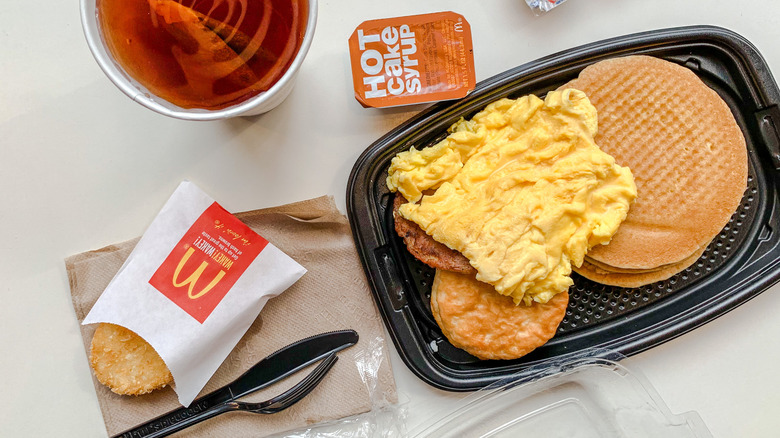Introduction
McDonald’s scrambled eggs are a popular breakfast item, but what’s really in them? One ingredient has raised some questions lately: citric acid. In this blog, we’ll dive into what’s inside McDonald’s scrambled eggs and if the addition of citric acid should concern you.

What Is Citric Acid?
Citric acid is a natural preservative commonly found in citrus fruits. In McDonald’s scrambled eggs, it helps preserve freshness and prevent discoloration. Although generally considered safe by health experts, some question its synthetic form, which can sometimes be produced with mold.
Is Citric Acid Safe?
Most health organizations, including the FDA, confirm that citric acid is safe for consumption. It’s colorless, flavor-enhancing, and commonly used in foods and beverages. However, there have been occasional concerns about allergic reactions related to its synthetic version, which is produced using molds.
How Does It Affect McDonald’s Scrambled Eggs?
For McDonald’s, citric acid’s primary purpose is to ensure their eggs stay fresh and visually appealing for customers. Despite its low levels in the scrambled eggs, it remains a somewhat controversial ingredient among those questioning food additives.
Should You Be Concerned?
For the majority of people, citric acid in McDonald’s scrambled eggs isn’t a cause for concern. However, if you’re sensitive to mold or additives, you can always opt for a freshly cracked round egg to skip the citric acid.
Conclusion
While citric acid is a standard ingredient in many foods, its presence in McDonald’s scrambled eggs has sparked some debate. Whether it’s a non-issue or a dealbreaker depends on your personal preference and health concerns. Either way, McDonald’s offers options for those wanting to avoid additives.









